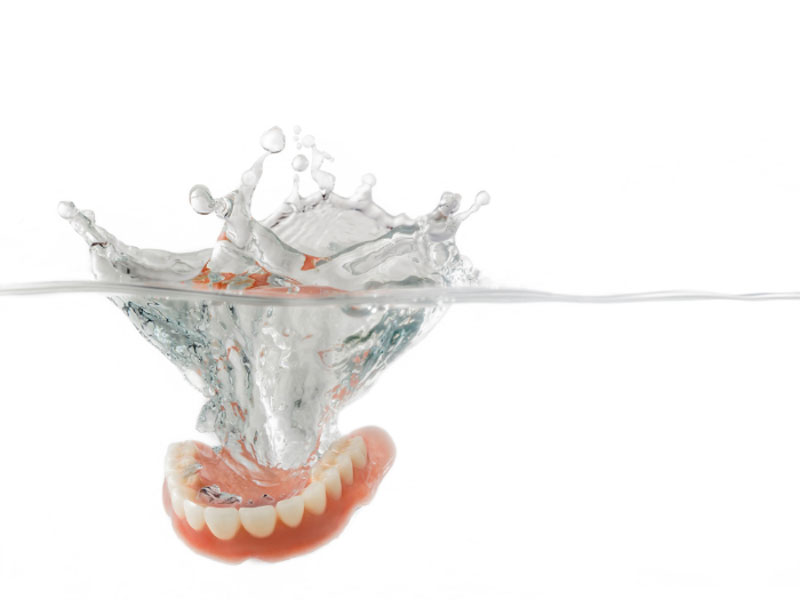Full Dentures vs. Partial Dentures: Which Is Right for You?

Because you are losing teeth, do you require a full set of dentures or simply a partial set?
A lot of people ask this question, and it's an excellent one. The kind of denture you get might change how you eat and how good you feel about your smile. If they fit correctly, dentures can do more than just improve your bite. They can also help you feel like yourself again.
In this article, we'll talk about the distinctions between full and partial dentures, who each type is best for, and what you should think about before making a choice.
What Are Complete Dentures?
Full dentures are supposed to replace all of the teeth in an arch, whether they are on the top, bottom, or both. They are created particularly for you and fit right over your gums. Acrylic is the most popular material used to construct complete dentures. They are designed like genuine teeth.
You might need full dentures if:
· You don't have any teeth remaining in either of your arches
· Your other teeth are very damaged or rotten
· You want a cheap solution to make your mouth operate again
What Are Partial Dentures?
If you still have some natural teeth, you may only require partial dentures. They fill in the spaces created by lost teeth and are held in place by clasps or precise fasteners that attach to your existing teeth.
Partial dentures are a good option if:
· You still have healthy teeth worth keeping
· You're missing several teeth but not an entire arch
· You want a removable, non-surgical solution
A Look at Full and Partial Dentures
Here’s a quick overview to compare the two:
|
Trait |
Full Dentures |
Partial Dentures |
|
Replaces |
All teeth in the upper or lower jaw |
One or more missing teeth |
|
Support Type |
Rests on gums |
Attaches to natural teeth |
|
Removability |
Removable |
Removable |
|
Best For |
Arches with no teeth |
Patients with some healthy teeth |
|
Stability |
May need adhesive for better fit |
Clasps offer better grip and stability |
|
Cost |
Typically cheaper overall |
Cost varies depending on materials and design |
How Do I Know Which One to Get?
There isn't one answer that works for everyone. Several factors can help guide your choice:
1. Number of Teeth Missing
If you don’t have any teeth in an arch, you likely need full dentures. If you’re only missing a few, a partial can fill in those gaps while keeping your healthy teeth in place.
2. Condition of Remaining Teeth
If your existing teeth are strong and stable, they can support a partial denture. But if they’re weak or at risk, your dentist might recommend removing them and using a full denture instead.
3. Budget and Timing
Full dentures are usually quicker and more affordable when replacing all teeth in an arch. Partial dentures vary in cost depending on the number of teeth being replaced and the materials used.
4. Long-Term Oral Health Goals
Partial dentures can help keep your remaining teeth in place and prevent them from shifting. Full dentures may be the better choice if no healthy teeth are left or if extractions are already part of your treatment plan.
What About Appearance and Comfort?
Today’s dentures are designed to look and feel more natural than ever. Both full and partial dentures can be customized to match your gum color and facial structure. While both types require an adjustment period, most patients find them comfortable with time and care.
If you're concerned about stability or slippage, implant-supported dentures may be a great alternative. These are anchored to small dental implants placed in your jaw for extra support, especially helpful for lower dentures.
Questions and Answers: Full vs. Partial Dentures
Will I be able to eat like normal?
Yes, but it takes some practice. Start with soft foods and gradually reintroduce harder textures. Partial dentures tend to feel more stable immediately, while full dentures become easier over time.
How long do dentures last?
With proper care, dentures typically last 5 to 10 years, depending on jawbone changes and daily maintenance.
Can I wear my dentures while I sleep?
It’s best to remove them at night. This gives your gums time to rest and reduces the risk of irritation or infection.
Not Sure Which One Is Right for You Yet?
You’re not the only one wondering whether full or partial dentures are best for your needs. The best way to know for sure is to get a personalized dental evaluation.
Call us today to set up a meeting and learn about the best denture option for your smile, lifestyle, and budget.
Let’s help restore your confidence—one tooth (or more) at a time.

